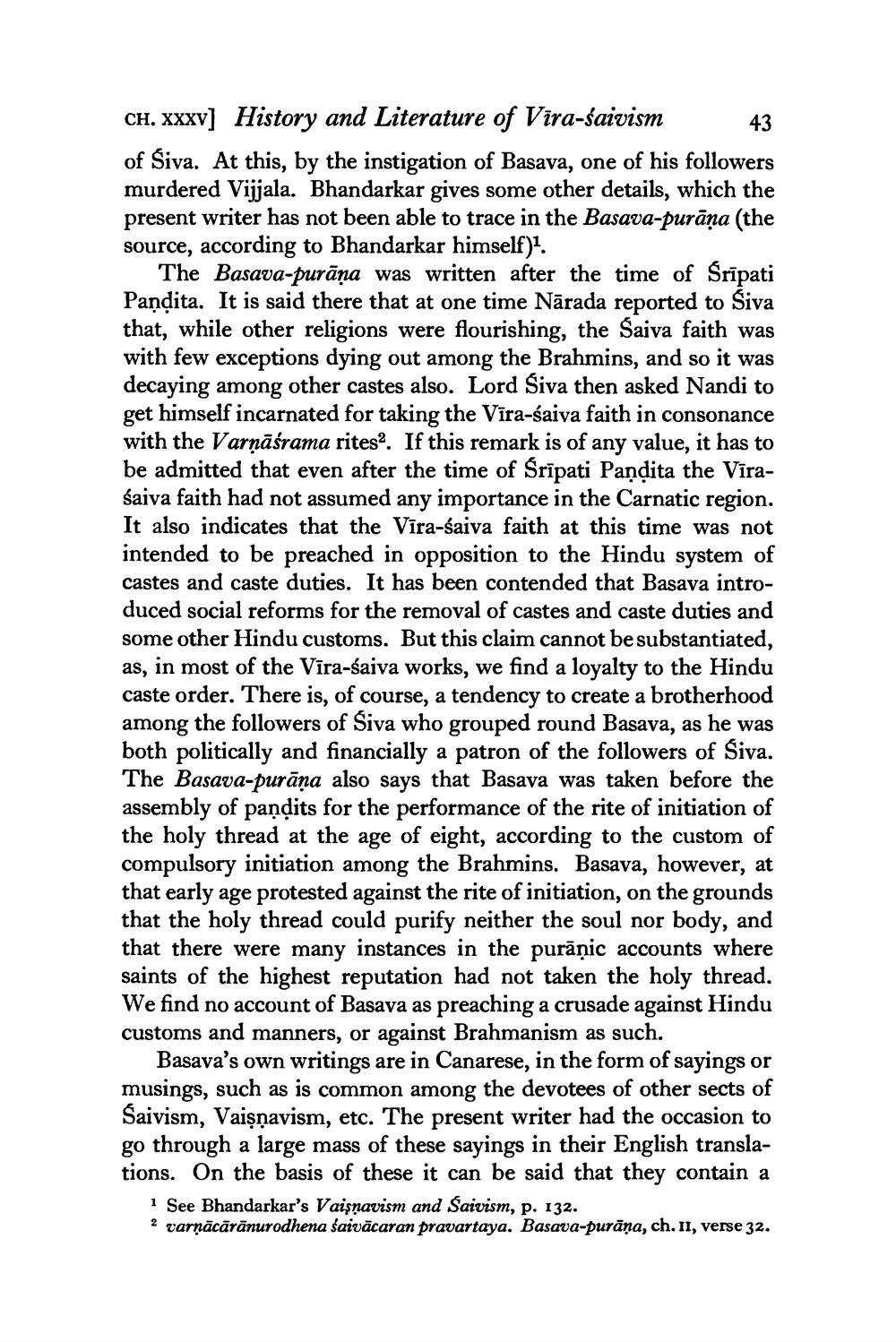________________
CH. XXXV] History and Literature of Vira-saivism 43 of Siva. At this, by the instigation of Basava, one of his followers murdered Vijjala. Bhandarkar gives some other details, which the present writer has not been able to trace in the Basava-purāņa (the source, according to Bhandarkar himself)'.
The Basava-purāņa was written after the time of Śrīpati Pandita. It is said there that at one time Nārada reported to Siva that, while other religions were flourishing, the Saiva faith was with few exceptions dying out among the Brahmins, and so it was decaying among other castes also. Lord Siva then asked Nandi to get himself incarnated for taking the Vīra-saiva faith in consonance with the Varņāśrama rites. If this remark is of any value, it has to be admitted that even after the time of Śrīpati Pandita the Vīraśaiva faith had not assumed any importance in the Carnatic region. It also indicates that the Vīra-śaiva faith at this time was not intended to be preached in opposition to the Hindu system of castes and caste duties. It has been contended that Basava introduced social reforms for the removal of castes and caste duties and some other Hindu customs. But this claim cannot be substantiated, as, in most of the Vīra-saiva works, we find a loyalty to the Hindu caste order. There is, of course, a tendency to create a brotherhood among the followers of Siva who grouped round Basava, as he was both politically and financially a patron of the followers of Siva. The Basava-purāna also says that Basava was taken before the assembly of pandits for the performance of the rite of initiation of the holy thread at the age of eight, according to the custom of compulsory initiation among the Brahmins. Basava, however, at that early age protested against the rite of initiation, on the grounds that the holy thread could purify neither the soul nor body, and that there were many instances in the purāņic accounts where saints of the highest reputation had not taken the holy thread. We find no account of Basava as preaching a crusade against Hindu customs and manners, or against Brahmanism as such.
Basava's own writings are in Canarese, in the form of sayings or musings, such as is common among the devotees of other sects of Saivism, Vaişņavism, etc. The present writer had the occasion to go through a large mass of these sayings in their English translations. On the basis of these it can be said that they contain a
i See Bhandarkar's Vaišnavism and Saivism, p. 132. 2 varnācārānurodhena saivācaran pravartaya. Basava-purāna, ch. II, verse 32.




